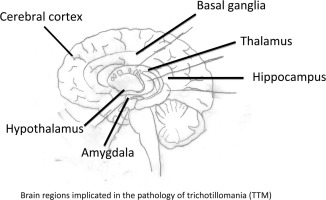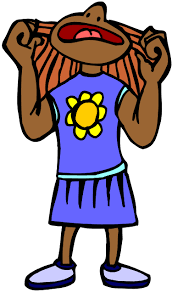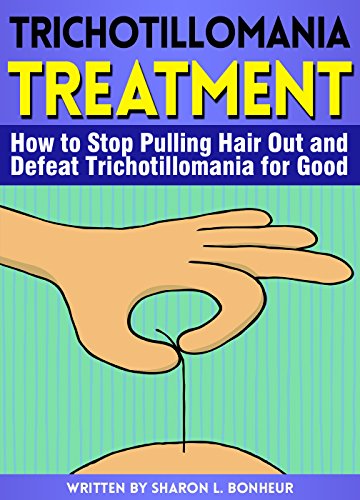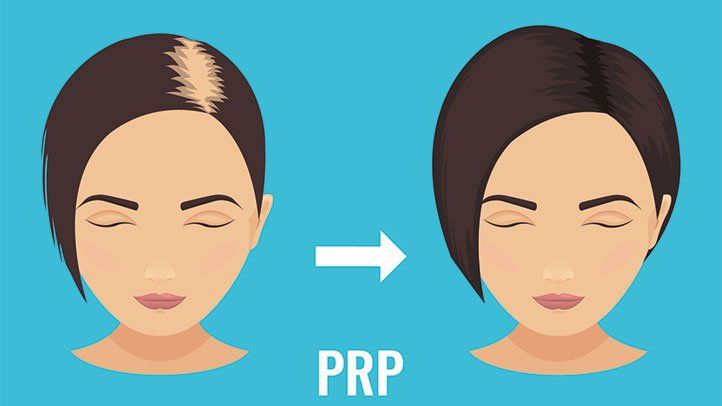Do you sometimes pull out your hair without realizing it? If so, you may be suffering from pulling hair out i.e. trichotillomania. This is a disorder that causes people to compulsively pull out their hair. It can be a very difficult condition to live with, but there are therapies available that can help. In this blog post, we will discuss the symptoms, treatments, and resources available for those who suffer from trichotillomania.
Contents
Understanding Pulling Hair Out (Trichotillomania)

Trichotillomania is a disorder that causes people to compulsively pull out their hair. This can include the hair on your head, eyebrows, eyelashes, or any other area of the body where hair grows. People with trichotillomania often feel a strong urge to pull out their hair, and they may do so without even realizing it. This can lead to hair loss and balding, as well as feelings of shame and isolation.
Degrees of Trichotillomania
There are three different degrees of trichotillomania:
- Mild: Pulling out hair occasionally, resulting in small bald spots
- Moderate: Pulling out hair frequently, resulting in larger bald spots
- Severe: Pulling out hair constantly, resulting in complete hair loss
Types of Trichotillomania
There are two different types of trichotillomania:
- Impulse control type: This is when someone pulls out their hair in response to an impulse or urge. It may be triggered by stress, anxiety, or boredom.
- Stimulus-sensitive type: This is when someone pulls out their hair in response to a particular stimulus. This could be something they see, feel or smell.
Symptoms of Trichotillomania
The main symptom of trichotillomania is the compulsive urge to pull out hair. This can be accompanied by other symptoms, such as:
- Anxiety
- Stress
- Boredom
- Depression
- Feelings of shame and isolation
- Hair loss
- Balding
- Skin infections
Causes of Trichotillomania
The exact cause of trichotillomania is unknown, but it is thought to be related to a combination of genetic and environmental factors. There may also be a connection between trichotillomania and other mental health conditions, such as OCD or depression.
Risk Factors For Trichotillomania
Trichotillomania can affect anyone, but it is most common in children and adolescents. Girls are more likely to be affected than boys. The condition may run in families, so there may be a genetic component.
Emotional States Associated with Trichotillomania
Those who suffer from trichotillomania often feel a strong urge to pull out their hair. This can be accompanied by other symptoms, such as anxiety, stress, boredom, and depression. These feelings can lead to shame and isolation.
Coping With Trichotillomania

There are a number of self-help tips that can help you cope with trichotillomania. These include:
- Identifying your triggers: What are the things that make you want to pull out your hair? Once you know what these are, you can try to avoid them.
- Finding other ways to cope: When you feel the urge to pull out your hair, try to find another way to cope. This could involve deep breathing, exercise, or talking to a friend.
- Using distraction techniques: If you can’t avoid your triggers, try to distract yourself from them. This could involve listening to music, reading a book, or playing a game.
- Seeking professional help: If you are struggling to cope with trichotillomania, talking to a professional can be very helpful. They can provide you with support and guidance.
Talking To a Professional
If you think you may have trichotillomania, it is important to see a doctor or mental health professional. They will be able to ask you questions about your symptoms and make a diagnosis. If you are diagnosed with trichotillomania, they will work with you to develop a treatment plan.
Therapies
There are a number of different therapies that can be used to treat pulling hair out. ie. trichotillomania. For instance:
- Cognitive-behavioral therapy: This is a type of therapy that can help you to change the way you think about hair pulling. It can also help you to find other ways to cope with stress and anxiety.
- Exposure and response prevention: This is a type of therapy that involves gradually exposing yourself to situations that trigger your urge to pull out hair. Once you are in the situation, you will be taught how to resist the urge to pull out your hair.
- Medications: There are a number of different medications that can be used to treat trichotillomania. These include antidepressants, anti-anxiety medications, and antipsychotics.
Hearing From Experts
“Trichotillomania is a complex condition that can be difficult to treat. The good news is that there are effective treatments available. If you or someone you know is struggling with trichotillomania, please seek professional help.” – Dr. Sarah Edwards, Clinical Psychologist
“Trichotillomania can be a very debilitating condition. It can cause significant hair loss and lead to social isolation. If you think you may have trichotillomania, it is important to seek professional help.” – Dr. David Anderson, Psychiatrist
Case Study
Amber is a 16-year-old girl who has been struggling with trichotillomania for the past year. She says that her hair pulling started shortly after her parents got divorced. Also, Amber says that she feels a strong urge to pull out her hair when she is feeling stressed or anxious.
Even though she has tried a number of different self-help techniques. But nothing has worked. Finally, Amber is now seeing a therapist and is on medication. She says that her hair pulling has decreased significantly. But she still struggles with it on occasion.
Resources

If you or someone you know is struggling with pulling hair out i.e. trichotillomania, there are a number of resources available. For instance:
- The Trichotillomania Learning Center: This is a non-profit organization that provides information and support to people with trichotillomania.
- The National Institute of Mental Health: This is a government website that provides information on mental health conditions.
- The TLC Foundation for BFRBs: This is a non-profit organization that provides information and support to people with trichotillomania and other body-focused repetitive behaviors.
Conclusion
Pulling hair out i.e trichotillomania is a complex condition that can be difficult to treat. However, there are effective treatments available. So if you think you may have trichotillomania, it is important to seek professional help. Fortunately, there are a number of resources available to help you cope with this condition.
A Word From Therapy Mantra
Your mental health — Your psychological, emotional, and social well-being — has an impact on every aspect of your life. Positive mental health essentially allows you to effectively deal with life’s everyday challenges.
At TherapyMantra, we have a team of therapists who provide affordable online therapy to assist you with issues such as depression, anxiety, stress, workplace Issues, addiction, relationship, OCD, LGBTQ, and PTSD. You can book a free therapy or download our free Android or iOS app.


